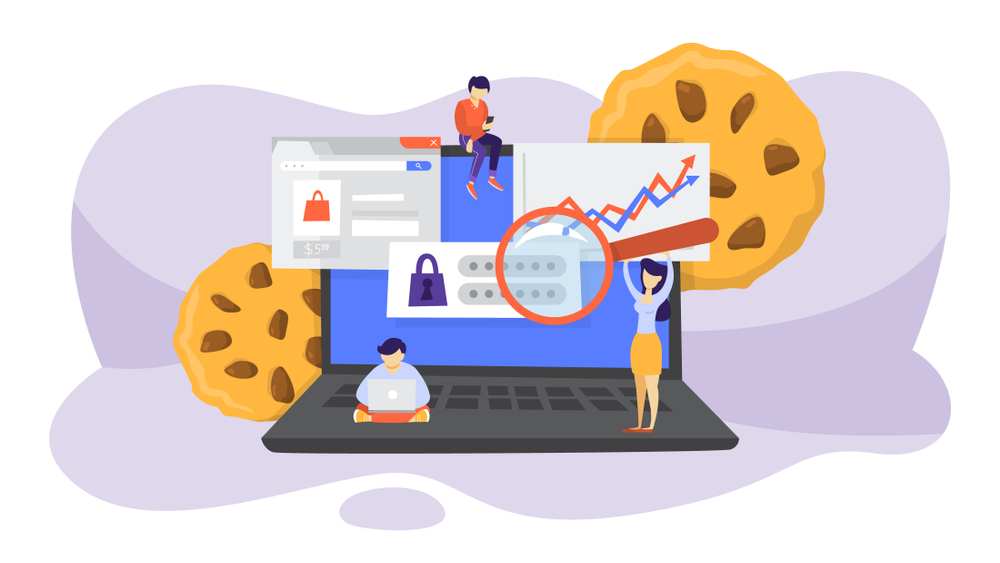Digital Marketing in a Cookieless World?

One of the most talked-about topics in the world of digital marketing today is the impending loss of cookies. They play a huge role in how advertisers target consumers, and their death will have an impact on campaigns and companies across the globe. But what exactly are cookies? Why are they going away? And what can you do to ensure your digital ad strategy remains successful even if you don't have access to them anymore? These are some of the questions that we'll be answering here, so keep reading for a full rundown of everything you need to know about marketing in a cookieless world.
What does the loss of cookies mean?
The loss of cookies means that marketers will have to come up with other ways to track user behavior and target ads. This is a good thing, because it eliminates the possibility of data leakage and increases privacy for users. For example, cookies can be used by websites to store information about your browsing history even when you aren't on the site in question—but if this information is lost, so are all sorts of privacy concerns.
However, if you're an advertiser or marketer looking for ways to track performance, then this loss might be a bad thing for you: cookies were once thought to be the best way to track how well sponsored posts were performing online. The fact that they're going away means that advertisers will need more advanced methods in order get accurate measurements from sponsored content campaigns (or maybe even just plain old organic ones).
How do cookies work for ad targeting?
Cookies are used to track user behavior and identify users. With these cookies, you can then target ads at those people. Cookies are also used to measure ad performance, retarget ads and measure ad engagement.
For example, if someone visits your website once and leaves without buying anything but later returns to your site and makes a purchase within 24 hours of returning, that person is engaging with your brand in some way (and likely saw something on their first visit). This is why it’s important for advertisers to use cookies - they help us understand our customers better so we can find more customers like them!
Why are cookies going away?
If you’ve been following the tech news, you might have noticed that cookies are going away. Despite the fact that they have been around for over 20 years and are still used by billions of people every day, cookies are being replaced by other tracking methods (such as fingerprinting) or blocked outright by browsers, privacy settings, GDPR compliance and ad blockers. The result is a cookieless world where marketers will have less information than ever before about their online customers.
This presents an opportunity for marketers looking to connect with consumers at scale while respecting their privacy: we can use new technologies like server logs, web beacons and pixel tracking to build more targeted digital advertising campaigns that also respect user choice around data collection and disclosure.

What does a cookieless world mean for advertisers and agencies?
If you’re a digital marketer, there are some key things you need to know about cookies as we move into a cookieless world:
- Cookies are a key part of the internet experience. The vast majority of websites use cookies to track and store information on visitors’ devices. This enables them to deliver personalized content, target ads more effectively and measure campaign performance. In short, they make it easier for brands to connect with consumers online by offering them more relevant content at scale—and that’s not going away anytime soon!
What can you do to future proof your digital ad strategy and business?
The first step for any digital advertising strategy is to understand your audience. Here's how you can use data to learn about your audience:
- Understand their behavior and intent. Are they frequenting certain websites, making certain purchases, reading certain content?
- Understand the context of their online activity. What are they doing on the website or app when they encounter your ads? How long do they stay there before leaving? Do they have other tabs open while browsing?
- Understand their environment. How many people are in their household and what are those demographics like? What kind of phone or computer do they have access to and what operating system does it run (if applicable).
The future is cookieless, but there are ways to make sure your marketing campaigns don't suffer.
The future is cookieless, but there are ways to make sure your marketing campaigns don't suffer.
Cookies are not going away, but they are changing. Cookies are still important for ad targeting and measurement, but not as much for fraud protection (see below). That said, if you're not using cookies to help target relevant ads to users based on their interests or other data collected about them online (e.g., gender), then you're missing out on an opportunity to deliver better experiences at scale.
The solution to this problem is not just a technical one. We need to educate people on why they should accept alternative approaches and have their data used for the greater good.
GET IN TOUCH
SCHEDULE A DISCOVERY CALL WITH CALENDLY
We want to hear from you!
